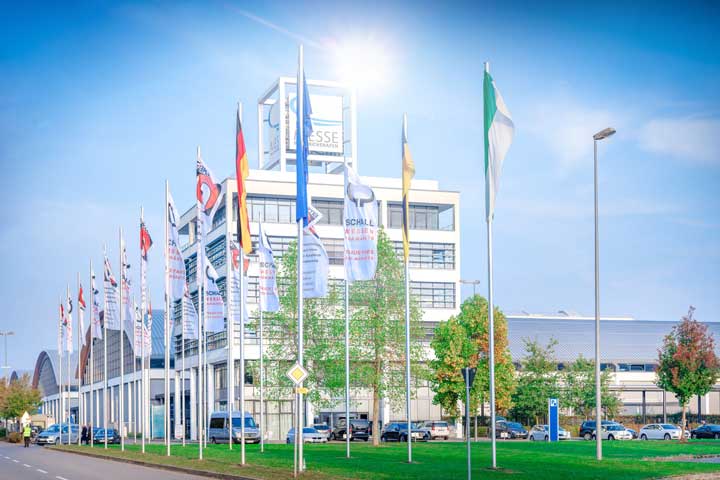Sustainability 06. October 2021
Climate friendly plastics presented by Exipnos at Fakuma
Non-fossil, biodegradable compounds such as BioElan or BioCelain® as well as the recycling plastics Betamid 6000 PIR and P-Blend PA 210 are just four of the numerous product innovations that Merseburg-based Exipnos GmbH is presenting at the Fakuma in Hall B2 at Stand 2108 of POLYKUM e.V. The materials mentioned combine a whole range of successful strategies to lower CO¬2 emissions in plastic production by 50 percent and more, to reduce the amount of plastic waste and to avoid microplastics in the environment.
BioElan is called Exipnos ‘Bio-PBS compound family. The compounds obtained from plants instead of fossil fuels have similar performance properties to PE or PP and are both recyclable and compostable. The BioElan types available up to now have been optimized for different processing methods, for example for extrusion and blow molding, for injection molding and for the production of monofilaments.
• BioCelain® is also bio-based, melamine-free outdoor porcelain that combines the advantages of a wide variety of materials. The almost unbreakable material with the approximate density of porcelain is dishwasher and microwave safe and can be recycled as well as composted. Processing with the DCIM direct compounding process means that the production process also requires up to 50 percent less energy than conventional injection molding.
• Betamid 6000 PIR: The polyamide 6 is created through Post Industrial Recycling (PIR). As a result, around 60% of the CO2 emissions can be saved compared to new goods, injection molding or extrusion types - with otherwise largely the same properties.
• P-Blend PA 210: This new blend in the Exipnos portfolio consists of 90 percent post-industrial recycled polyamide. Compared to new goods, around 50% of the CO2 emissions are saved during production.
BioElan is called Exipnos ‘Bio-PBS compound family. The compounds obtained from plants instead of fossil fuels have similar performance properties to PE or PP and are both recyclable and compostable. The BioElan types available up to now have been optimized for different processing methods, for example for extrusion and blow molding, for injection molding and for the production of monofilaments.
• BioCelain® is also bio-based, melamine-free outdoor porcelain that combines the advantages of a wide variety of materials. The almost unbreakable material with the approximate density of porcelain is dishwasher and microwave safe and can be recycled as well as composted. Processing with the DCIM direct compounding process means that the production process also requires up to 50 percent less energy than conventional injection molding.
• Betamid 6000 PIR: The polyamide 6 is created through Post Industrial Recycling (PIR). As a result, around 60% of the CO2 emissions can be saved compared to new goods, injection molding or extrusion types - with otherwise largely the same properties.
• P-Blend PA 210: This new blend in the Exipnos portfolio consists of 90 percent post-industrial recycled polyamide. Compared to new goods, around 50% of the CO2 emissions are saved during production.

